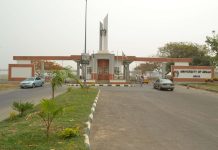In commemoration of the World Aids Day, an international day which holds December 1 every year, the attention of the world has been drawn towards the global health, especially people living in communities.
With a close look at the theme for the year 2023, ‘Let communities lead’, the impact of the acquired immunodeficiency syndrome (AIDS) has prompted the need for to raising awareness of the AIDS pandemic caused by the spread of HIV infection and mourning those who’ve died of the disease.
The awareness of the pandemic in communities also reminds everyone that AIDS is a life-threatening condition caused by the human immunodeficiency virus (HIV) and the virus attacks the immune system of the patient and reduces its resistance to other diseases.
Considering the negative impact AIDS that has left an estimated 37.7 million people to live with the HIV, the disease remains one of the most important global public health issues in recorded history, killing between 27.2 million and 47.8 million people worldwide as of 2020.
This is one of the major reasons for the introduction of improved access to antiretroviral treatment in many regions of the world.
Another aim for this awareness is to work towards a day when HIV will is no longer be a public health threat, as the world honour those we have lost their lives as a result of the disease.
Going memory lane, the impact of the awareness yielded results as the death rate from AIDS epidemic decreased by 64% since its peak in 2004 (1.9 million in 2004, compared to 680 000 in 2020).
Currently the awareness has been channelled towards to achieve the goals of ending AIDS by 2030 and mobilize all stakeholders to jointly redouble efforts to ensure the success of the HIV response.
This starts with the World Health Organisation (WHO) celebrating the role of communities in driving progress towards ending AIDS
WHO has joined their international partners to acknowledge the resilience, dedication and innovation exemplified by community leaders and organizations in the response to the HIV epidemic.
These efforts ranges from fighting stigma and discrimination, to advocating for access to affordable interventions, and community led services.
In reaction to the situation, the first WHO Director-General Dr. Tedros Adhanom Ghebreyesus said, “People living with or affected by HIV have left an indelible mark on the world with their activism,”
“The affected communities who fought for tools to prevent, test and treat HIV enabled 30 million people to access antiretroviral therapy, and helped to avert an unknowable number of infections. We stand together with communities to help end AIDS as a public health threat by 2030.”
Interestingly, HIV remains a pressing public health issue Despite significant progress in awareness.
Its also surprising to know that 9.2 million people Globally, do not have access to the HIV treatment that they need.
Each day 1700 lives are lost from HIV-related causes, and 3500 people are infected, with many not knowing their status or having access to treatment.
No doubt, there is still an urgent need for continued funding to HIV programmes so that community leaders can continue reaching those affected.


























